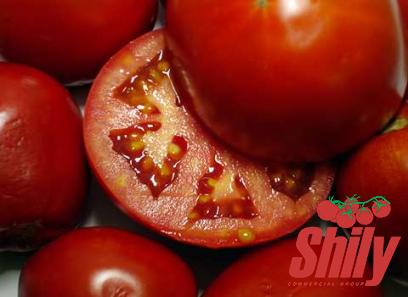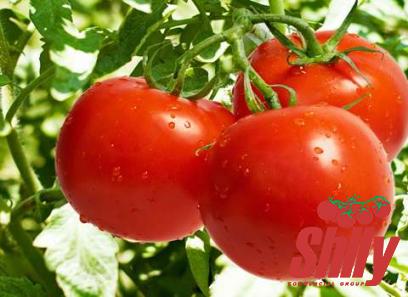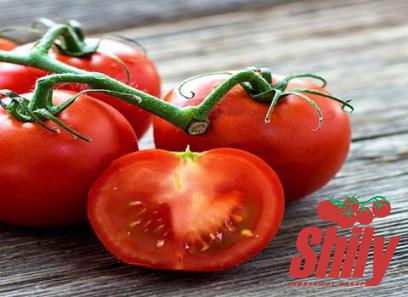When we think of tomato paste, we often envision the rich, concentrated flavor it adds to our favorite dishes. It’s a pantry staple that many of us rely on for quick and easy meals. However, beneath its vibrant red hue lies a controversial truth – tomato paste may not be as healthy as we once thought. In this article, we will delve into the dark side of tomato paste, exploring its potential health risks and hidden unhealthy secrets. **The Process Behind Tomato Paste Production** Tomato paste is made by cooking down tomatoes to remove the excess moisture, resulting in a thick, concentrated product. While this process helps preserve the tomatoes and intensifies their flavor, it also strips away some of the nutritional value. Fresh tomatoes are rich in vitamins, minerals, and antioxidants, but during the production of tomato paste, some of these nutrients may be lost or diminished. Additionally, many commercial tomato paste products contain added sugars, salt, and preservatives to enhance flavor and prolong shelf life. These additives can contribute to health problems such as obesity, high blood pressure, and heart disease when consumed in excess.

.
 **The Sugar Trap: Hidden Sweeteners in Tomato Paste** One of the most concerning aspects of tomato paste is its high sugar content. Some brands of tomato paste have added sugars to balance out the acidity of the tomatoes and improve the overall taste. However, excessive sugar consumption has been linked to a host of health issues, including weight gain, type 2 diabetes, and tooth decay. It’s important to read the labels carefully when choosing a tomato paste product. Opt for brands that have no added sugars or choose organic varieties that use natural sweeteners like honey or agave syrup. By being mindful of your sugar intake, you can enjoy the benefits of tomato paste without compromising your health. **Sodium Overload: The Dangers of High Salt Content** Another common concern with tomato paste is its high sodium content. Salt is often added to tomato paste as a preservative and flavor enhancer, but consuming too much salt can have negative consequences for your health. Excess sodium intake has been linked to high blood pressure, stroke, and heart disease. To reduce your sodium intake, look for low-sodium or no-salt-added varieties of tomato paste. You can also experiment with alternative seasonings like herbs, spices, and citrus zest to enhance the flavor of your dishes without relying on salt. Taking small steps to reduce your salt intake can have a big impact on your overall health and well-being. **The Pesticide Problem: Organic vs.
**The Sugar Trap: Hidden Sweeteners in Tomato Paste** One of the most concerning aspects of tomato paste is its high sugar content. Some brands of tomato paste have added sugars to balance out the acidity of the tomatoes and improve the overall taste. However, excessive sugar consumption has been linked to a host of health issues, including weight gain, type 2 diabetes, and tooth decay. It’s important to read the labels carefully when choosing a tomato paste product. Opt for brands that have no added sugars or choose organic varieties that use natural sweeteners like honey or agave syrup. By being mindful of your sugar intake, you can enjoy the benefits of tomato paste without compromising your health. **Sodium Overload: The Dangers of High Salt Content** Another common concern with tomato paste is its high sodium content. Salt is often added to tomato paste as a preservative and flavor enhancer, but consuming too much salt can have negative consequences for your health. Excess sodium intake has been linked to high blood pressure, stroke, and heart disease. To reduce your sodium intake, look for low-sodium or no-salt-added varieties of tomato paste. You can also experiment with alternative seasonings like herbs, spices, and citrus zest to enhance the flavor of your dishes without relying on salt. Taking small steps to reduce your salt intake can have a big impact on your overall health and well-being. **The Pesticide Problem: Organic vs.
..
 Conventional Tomato Paste** In addition to added sugars and salt, conventional tomato paste may also contain traces of pesticides and other harmful chemicals. Conventionally grown tomatoes are often treated with pesticides to protect them from pests and diseases, but these chemicals can linger on the fruits and end up in the final product. Choosing organic tomato paste is a safer and more environmentally friendly option. Organic tomatoes are grown without synthetic pesticides, herbicides, or fertilizers, reducing your exposure to harmful chemicals and supporting sustainable farming practices. While organic products may be pricier, the health benefits and peace of mind they offer make them a worthwhile investment. **Tomato Paste and BPA: The Risk of Hormone Disruptors** When it comes to packaging, another concern arises with canned tomato paste. Many canned foods, including tomato paste, are lined with a material containing bisphenol A (BPA), a chemical that has been linked to hormone disruption, reproductive problems, and other serious health issues.
Conventional Tomato Paste** In addition to added sugars and salt, conventional tomato paste may also contain traces of pesticides and other harmful chemicals. Conventionally grown tomatoes are often treated with pesticides to protect them from pests and diseases, but these chemicals can linger on the fruits and end up in the final product. Choosing organic tomato paste is a safer and more environmentally friendly option. Organic tomatoes are grown without synthetic pesticides, herbicides, or fertilizers, reducing your exposure to harmful chemicals and supporting sustainable farming practices. While organic products may be pricier, the health benefits and peace of mind they offer make them a worthwhile investment. **Tomato Paste and BPA: The Risk of Hormone Disruptors** When it comes to packaging, another concern arises with canned tomato paste. Many canned foods, including tomato paste, are lined with a material containing bisphenol A (BPA), a chemical that has been linked to hormone disruption, reproductive problems, and other serious health issues.
…
 To minimize your exposure to BPA, opt for tomato paste packaged in glass jars or BPA-free cans. It’s also advisable to store any leftover tomato paste in a glass or plastic container to avoid prolonged contact with the can lining. By taking these precautions, you can reduce your risk of potential health hazards associated with BPA exposure. **Balancing the Benefits and Risks of Tomato Paste Consumption** While tomato paste may have its unhealthy aspects, it also offers some nutritional benefits. Tomatoes are a good source of antioxidants like lycopene, which has been linked to a reduced risk of certain cancers and heart disease. When consumed in moderation and paired with a balanced diet, tomato paste can be a flavorful addition to your meals without posing significant health risks. To make the most of tomato paste’s benefits while minimizing its unhealthy aspects, consider making your own homemade tomato paste using fresh, organic tomatoes. This way, you can control the ingredients and ensure that your tomato paste is free from added sugars, salt, and preservatives. In conclusion, tomato paste may not be as innocent as it appears. From hidden sugars and salt to pesticide residues and BPA contamination, there are several factors to consider when incorporating tomato paste into your diet. By choosing organic, low-sodium, and BPA-free options and being mindful of portion sizes, you can enjoy the rich flavor of tomato paste while prioritizing your health and well-being.
To minimize your exposure to BPA, opt for tomato paste packaged in glass jars or BPA-free cans. It’s also advisable to store any leftover tomato paste in a glass or plastic container to avoid prolonged contact with the can lining. By taking these precautions, you can reduce your risk of potential health hazards associated with BPA exposure. **Balancing the Benefits and Risks of Tomato Paste Consumption** While tomato paste may have its unhealthy aspects, it also offers some nutritional benefits. Tomatoes are a good source of antioxidants like lycopene, which has been linked to a reduced risk of certain cancers and heart disease. When consumed in moderation and paired with a balanced diet, tomato paste can be a flavorful addition to your meals without posing significant health risks. To make the most of tomato paste’s benefits while minimizing its unhealthy aspects, consider making your own homemade tomato paste using fresh, organic tomatoes. This way, you can control the ingredients and ensure that your tomato paste is free from added sugars, salt, and preservatives. In conclusion, tomato paste may not be as innocent as it appears. From hidden sugars and salt to pesticide residues and BPA contamination, there are several factors to consider when incorporating tomato paste into your diet. By choosing organic, low-sodium, and BPA-free options and being mindful of portion sizes, you can enjoy the rich flavor of tomato paste while prioritizing your health and well-being.










Your comment submitted.